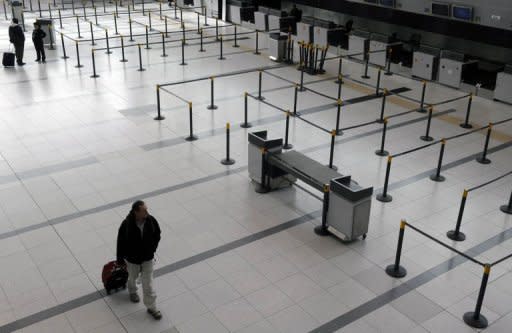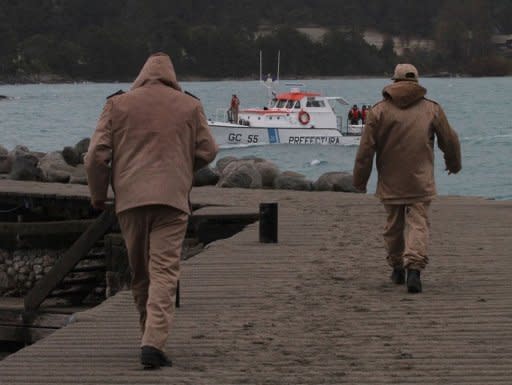Chilean volcano ash sparks more flight chaos
Flights from major airports across parts of South America were canceled Friday as ash from Chile's Puyehue volcano spread across the region, nearly a week after the volcano erupted for the first time in half a century. Flights from airports in Buenos Aires, Montevideo, Santiago and southern Brazilian cities were grounded due to clouds of ash high in the sky. It was the second straight day that flights were canceled out of Montevideo and Buenos Aires, a major regional transportation hub, after also being grounded earlier in the week on Tuesday. Most air terminals in southern Argentina were also closed, and will remain shuttered "until the weather situation improves," officials said. By late afternoon, the two main airports in Buenos Aires began to "slowly resume operations" as the effects of the ash cloud began to diminish. Flights were grounded across Uruguay, though there was a slim chance that they could resume late Friday, a spokesman at Montevideo's Carrasco International Airport told AFP. The optimism may be unwarranted: Chilean volcano monitors said the Puyehue had increased its activity. Santiago airport had canceled all flights to and from Buenos Aires and Montevideo. "It is possible that there could be an increase in eruptions similar to those in the past or of higher intensity," Chile's National Geology and Mining Service warned. The ash cloud was above Rio Grande do Sul state, sailing between 7,000 and 10,000 meters (23,000 and 33,000 feet) above the ground, Brazilian aviation officials said. "If the current weather pattern continues, the cloud will likely head over the Atlantic Ocean," they said in a statement. Airports in the Brazilian cities of Porto Alegre, Curitiba and Florianopolis were open, but "the airline companies decided to not fly for security reasons due to the volcanic ash," a spokesperson for the government airport authority Infraero told AFP. Some flights were also canceled at the Sao Paulo and Rio de Janeiro international airports. Volcanic ash "is very dangerous, very abrasive for plane engines and could result in very serious complications," Argentine Transportation Secretary Juan Pablo Schiavi warned earlier. The volcano, which rumbled to life on Saturday for the first time since 1960, is high in the Andes mountains, 870 kilometers (540 miles) south of the Chilean capital Santiago, near the border with Argentina. Winds have spread the ash across much of southern Argentina, threatening to hurt tourism at the start of the winter ski season in the Argentine Andes. The eruption forced the Argentine ski resort town of Bariloche, located some 100 kilometers (62 miles) from the volcano, to declare a state of emergency and close its airport. Separately, heavy rain in the area around the volcano has increased the threat of mud and ash landslides, Chilean monitors said. The rain clouds prevented the monitors from measuring the height of the ash columns, but they said Thursday that the Puyehue was belching ash columns that reached nearly 7.5 kilometers (4.6 miles) into the sky. burs/ch-jkb/oh



